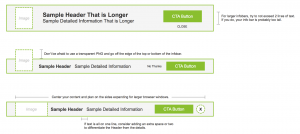Strategic advice on AI implementation, data privacy and accessibility best practices and seamless martech integration.

My previous article, “3 pointers to navigate the confusing martech marketplace,” offered essential strategies for navigating the evolving martech landscape. Staying updated with new strategies and tools is crucial for driving your martech transformation as this ecosystem grows.
It’s just as important to approach this transformation with a strategic, deliberate and evidence-based mindset to ensure success. Here are three more timely and relevant pointers to help you navigate this complex marketplace and unlock the power of your martech stack:
1. Leverage AI and machine learning for enhanced decision-making
AI and ML have evolved into essential tools for transforming your marketing efforts. Develop a comprehensive AI strategy aligned with your business objectives, including assessing current data assets, clear desired outcomes and a roadmap for implementation and measurement.
“The success of AI in marketing relies heavily on the quality and relevance of the data used to train the models,” shares data and AI consultant Eric Brown, DSc. “It’s necessary to have a well-defined data strategy that ensures the collection, storage and processing of clean, accurate and representative data. This forms the foundation for effective AI implementation in marketing.”
Practical advice
- Invest in AI-powered analytics tools: Use tools that offer predictive analytics to forecast customer behavior and optimize your marketing campaigns for maximum impact. Validate these predictions to ensure they align with your business goals.
- Automate customer segmentation: Implement AI-driven segmentation to create more targeted, personalized marketing messages that resonate with your audience. Ensure your data is clean, accurate and representative of your target audience, as AI is only as good as the data it’s trained on.
- Enhance customer experience: Utilize chatbots and virtual assistants to provide real-time support and improve customer engagement across all touchpoints. Continually monitor and refine these tools to ensure they provide accurate, helpful and accessible experiences for all users.
2. Focus on data privacy, compliance and accessibility
With rising data privacy concerns and stringent regulations like GDPR and CCPA, ensuring compliance in your martech stack is crucial. Adherence to these regulations can result in hefty fines and damage your brand’s reputation. Moreover, accessibility is a necessary aspect of compliance and ethical marketing practices. Ensuring that your marketing technologies and content are accessible to all users, including those with disabilities, is a legal and moral requirement.
“Accessibility isn’t just a box to be checked for compliance; it’s an essential part of creating an inclusive digital experience,” says Kim Baekgaard, partner at digital business consulting company Alpha Solutions. “By prioritizing accessibility in your martech stack, you not only mitigate legal risks but also demonstrate your commitment to serving all customers, regardless of their abilities. It’s a win-win for both your brand and your audience.”
Practical advice
- Conduct regular audits: Regularly audit your data collection, storage and usage practices to ensure compliance with current regulations and maintain customer trust. These audits should also include a thorough review of your martech stack’s accessibility features and compliance with relevant accessibility guidelines, such as WCAG.
- Implement consent management platforms (CMPs): Use CMPs to effectively manage user consent and preferences. Ensure your CMP is fully accessible and provides clear, easy-to-understand information about data collection and usage practices.
- Prioritize accessibility in martech procurement: When evaluating new martech solutions, prioritize those that offer robust accessibility features and comply with relevant accessibility standards. This ensures compliance and demonstrates your commitment to inclusivity and equal access for all users.
- Train your team on accessibility best practices: Provide regular training and resources to ensure that your marketing team understands the importance of accessibility and knows how to create accessible content and experiences. This includes using alt text for images, providing video captions and ensuring that color contrast meets accessibility standards.
- Engage with disability communities: Actively seek feedback and input from individuals with disabilities and disability advocacy groups to ensure your marketing efforts are truly inclusive and accessible. This will help you identify areas for improvement and demonstrate your commitment to building authentic relationships with diverse communities.
By prioritizing data privacy, compliance and accessibility in your martech strategy, you can build customer trust, mitigate legal risks and create more inclusive and effective marketing experiences for all.
3. Integrate your martech stack for seamless operations
Integrating various tools and platforms is a significant challenge in the martech landscape but is crucial for operational efficiency. Research and my own experience indicate that most IT projects face challenges, and martech integration is no exception.
Common challenges include incompatible systems, lack of standardized data formats and insufficient technical expertise. To harness the full potential of your martech, approach integration purposefully and strategically.
Practical advice
- Choose interoperable tools: Opt for martech solutions that easily integrate with your existing systems for a more cohesive tech stack. Thoroughly research and test integrations before making any commitments to avoid compatibility issues down the line.
- Utilize integration platforms: Use integration platforms as a service (iPaaS) to connect disparate tools and ensure smooth data transfer across your entire ecosystem. Remember that these platforms require significant planning and resources to implement effectively, so be prepared to invest time and effort into the process.
- Centralize data management: Implement a centralized data management system to maintain a single source of truth and improve data accuracy for more informed decision-making. Be aware that this process involves significant time and effort to clean, standardize and integrate data from multiple sources, so plan accordingly.
By incorporating these pointers into your martech strategy, you can stay ahead of the curve and effectively navigate the ever-changing martech marketplace. Remember, the key to successful martech transformation lies in staying informed, being adaptable and continuously optimizing your martech stack.
Most importantly, approach each aspect of your martech transformation with a strategic, deliberate and evidence-based mindset to ensure long-term success. By setting realistic expectations, thoroughly researching solutions and being transparent about potential challenges, you can unlock the true power of martech and drive measurable business results.
The post 3 more pointers to navigate the confusing martech marketplace appeared first on MarTech.
(5)
Report Post





